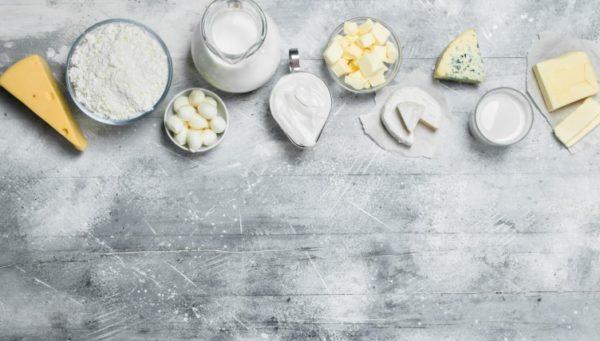(MENAFN- Brazil-Arab News Agency (ANBA))

São Paulo – The growing demand for dairy products in Egypt could be an opportunity for Brazilian suppliers in the industry. This market was opened to Brazil in 2019, but sales are still occasional. However, a study by the Brazilian Trade and Investment Promotion Agency (ApexBrasil) shows that dairy consumption in the Arab country is promising, as are business prospects in the area.
The survey, made public in April, was a partnership between ApexBrasil and Brazil's Ministry of Agriculture and Livestock, Ministry of Foreign Affairs, and the Embassy of Brazil in Cairo.
It was carried out before tariffs on imports of different food products were dropped last week by an Egyptian government decree . Dairy products from all countries will now have zero import tariffs for six months.
The agricultural attaché of the Embassy of Brazil in Cairo, Rafael Mohana, spoke to ANBA about the topic and explained which products could benefit from the policy.
Brazil already faces intense competition from traditional suppliers to Egypt, such as European Union countries, New Zealand, and the United States.“With the prime minister's decree, theoretically, any country able to export dairy products to Egypt could benefit from the tariff exemption. Also, this only applies to certain dairy products stated in the decree; not all products benefited from the resolution,” Mohana told ANBA.
Read more: Egypt waives tariffs on imports of poultry, other foods
Market
According to the ApexBrasil study, Egypt is a significant consumer of dairy products; powdered milk is the main import of its local industry. Butter imports are also a highlight and serve the industry and end consumers. Egypt also imports a sizeable volume of cheese .
“In 2022, Egypt imported USD 690 million worth of dairy products, according to Trade Map. Revenue was 11.3% higher than in 2021, revealing a growing demand for these products by Egyptian consumers,” said Mohana. Trade Map is a market analysis tool.
Brazil-Egypt
The Egyptian market opened to Brazilian dairy products in October 2019. In 2022, the South American country exported USD 315,000 worth of dairy products to Egypt.“In 2021, it exported USD 161,000, which indicates a market that is still little explored by Brazilian companies. Milk cream represents 99% of Brazil's dairy exports to Egypt in recent years, according to Agrostat,” said the attaché. Agrostat is the statistics platform of the Ministry of Agriculture and Livestock of Brazil.
“Regarding the decree that waived tariffs for some products, concerning dairy products, Brazilian exporters of cream could benefit , since for the HS4 code 0401 and its subcategories, according to the current calendar of tariff reduction (category C), a tariff of 1.25% was still applied to these Brazilian products, which will be reduced to zero due to prime minister Mustafa Madbouly's decree, for the next six months,” explained Mohana.
In the case of butter , the attaché informed there would be no additional benefits with the resolution, as the product and its subcategories are already exempt from tariffs.
“In the case of cheese , the decree exempted tariffs only for products under HS6 code 040610 ( Fresh [unripened or uncured] cheese, including whey cheese and curd ), which Brazil does not yet export to Egypt, but which, in the event of a Brazilian shipment, would be benefited from import tariff waiver. Today, according to the tariff reduction schedule (category C), these products are subject to a 2.5% tariff,” he said.
Consumption
Mohana stated the determining factor for purchasing dairy products on the Egyptian market is price , given the country's economic situation.“Most Egyptians are looking for affordable alternatives, as some products have become beyond their purchasing reach. High-income consumers are the exception to this trend and seek nutritious and healthy foods, preferring imported products, which are typically more expensive,” he informed.
According to the attaché, products with potential for selling in Egypt are powdered milk, butter, and cheese .“However, Brazilian companies will face strong competitors in the market: New Zealand, European Union countries, and the United States, which have long been Egyptian suppliers and have a good reputation,” he said. These products, said Mohana, are used as raw inputs by Egyptian industries to produce ready-to-eat processed foods.
Free trade agreement
Brazilian products already have a competitive edge thanks to the Mercosur-Egypt free trade agreement .“However, European Union countries and the United States also have free trade agreements with the country, which makes them equally competitive in this market given the exemption of import tariffs,” informed the attaché.
Butter and powdered milk from Brazil are exempt from tariffs since the Mercosur-Egypt agreement came into force in 2017.“Other products that have already benefited from the tariff reduction schedule and are currently exempt are grated or powdered cheese and concentrated milk ,” he said.
Read ApexBrasil's full study on dairy products in Egypt .
The remaining categories of dairy products are expected to reach zero tariffs following the Mercosur-Egypt free trade agreement calendar, to be concluded in September 2026.
Translated by Elúsio Brasileiro
Press release
The post Egypt has growing demand for dairy products appeared first on Agência de Notícias Brasil-Árabe .
MENAFN19102023000213011057ID1107274270
Legal Disclaimer:
MENAFN provides the information “as is” without warranty of any kind. We do not accept any responsibility or liability for the accuracy, content, images, videos, licenses, completeness, legality, or reliability of the information contained in this article. If you have any complaints or copyright issues related to this article, kindly contact the provider above.